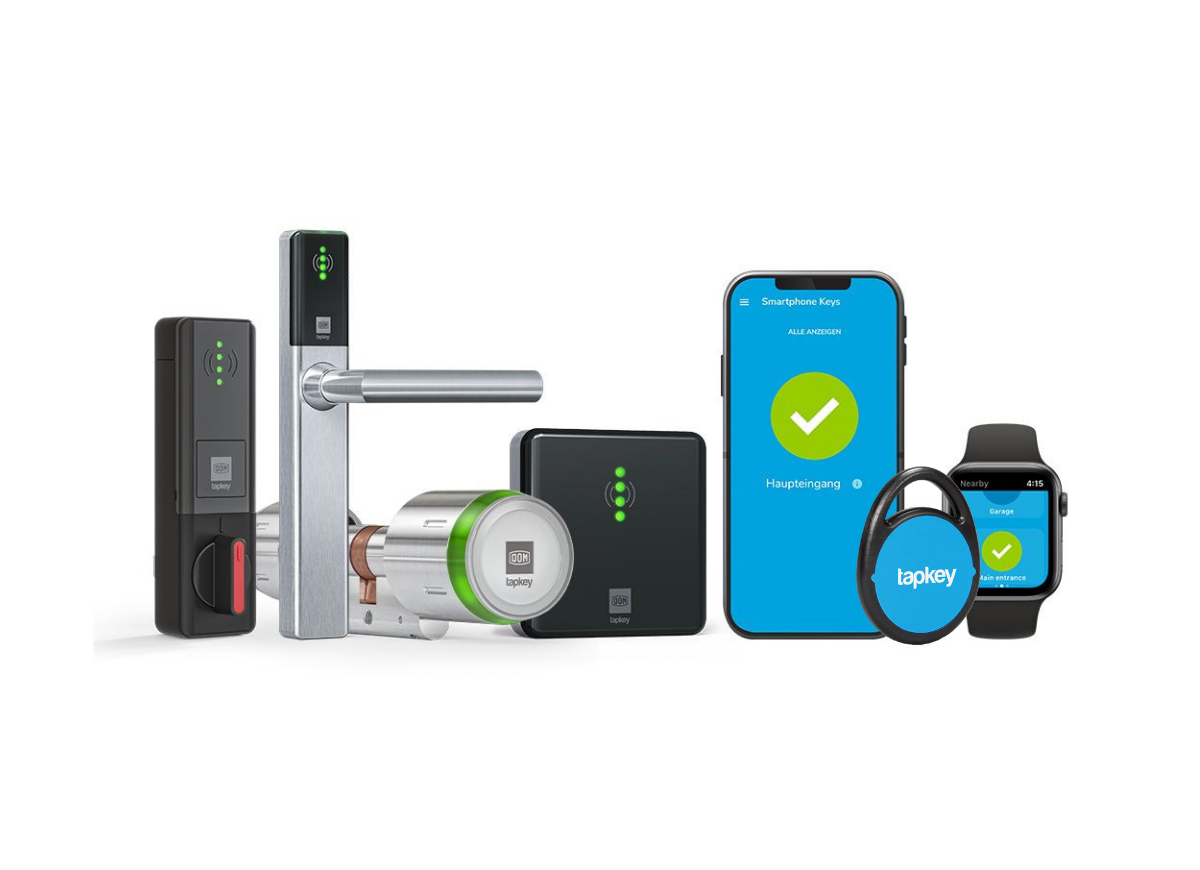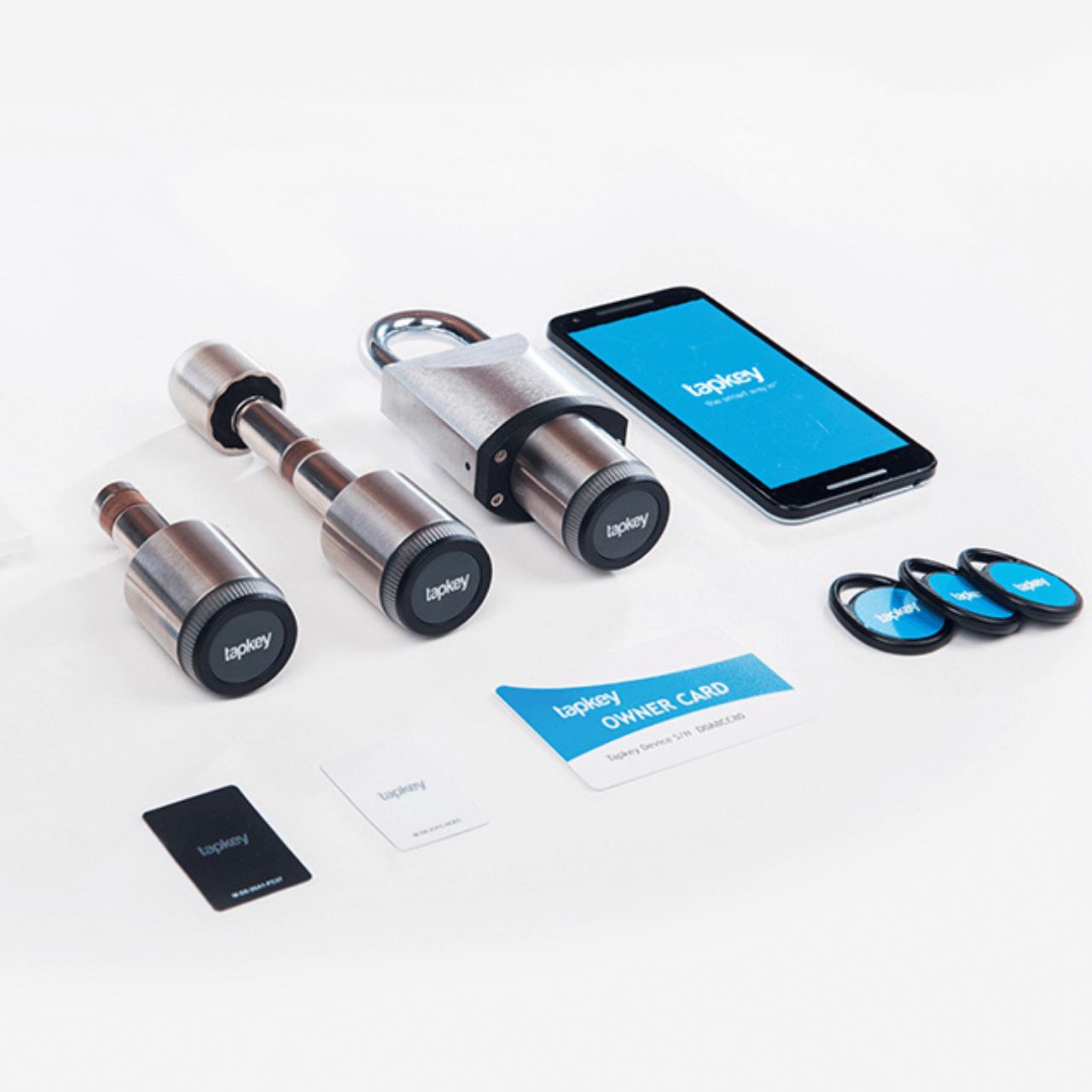Maximum security, convenience and flexibility in buildings
The principles of providers of electronic locking systems sound similar to this. But skeptics will say: How much does such a system cost? How complicated is the installation? And what about security? We took a closer look at the five most common prejudices against electronic locking systems and uncovered them.
1. No dough, no show
“An electronic door lock is simply too expensive for me.” Yes, we admit: The purchase price of an electronic lock is sometimes quite high. But the emphasis is on sometimes. Nowadays, there are numerous suppliers on the market and so there are solutions that will meet everybody’s budget. One has to keep in mind that there are different requirements for a single-family home than for a building complex with hundreds of offices. So you have to weigh up from use case to use case. After all, quality has its price.
But even mechanical keys can be associated with high costs in case of loss and have far-reaching consequences. Imagine a tenant losing his key, which will lead to discomfort for the tenant. But much more: The landlord must deal with issues such as insurance protection. If the key can open up several locks, the replacement of the locking system can quickly become more expensive than the purchase of a smart lock.
2. High installation effort
Assembling locks is associated with a lot of effort and is complicated. The installation effort is a legitimate concern when you get an electronic door lock. Often, the cylinders must be measured, replaced and reassembled. If necessary, wall readers must be attached to the intercom system as well. Sometimes it’s even necessary to wire the doors.
But again, the market for electronic door locks includes numerous providers. For some systems, these disadvantages may apply. Others are more straightforward, easier to install– without major modifications. Convince yourself and watch our installation video. It only takes 3 minutes to install the smart lock by yourself.
3. No electricity = locked out
Help! A big concern of many people is that you are standing in front of a locked door in case of a power failure. We must vehemently disagree with this point. Not every electronic locking system is coupled to an in-building power grid. Not just the Tapkey Smart Lock but many other cylinders work with their own (rechargeable) batteries. The big advantage: Many of these locks can also be used “offline”. This means they do not need electricity or an internet connection. For example, you can easily use our padlock for your cellar compartment.
4. Administration: More than complex
Everyone of us knows: One app joins the other. The Tapkey app and other applications are user-friendly and intuitive to use. People can log in with their email address, view access rights and manage permissions.
However, an additional key management app is not always optimal for everyone. Most property managers or coworking space operators already use their own software. To avoid having to deal with countless applications, Tapkey offers an open API interface. Via the API, the access feature can be integrated into the existing software. Accordingly, the key management can be integrated into already well-established work processes.
5. What about security?
A widespread issue that comes up again and again: Digital locks offers points of attack for hackers. Security has always played a big role when talking about digital access solutions, and that’s a good thing! However, we would like to point out that it is easier for burglars to physically destroy mechanical locks than for hackers to hack a digital lock. The following questions need to be highlighted in the discussion: How many attack points do hackers encounter, and how hard can these security obstacles be overcome?
In general, electronic locks are much safer than traditional metal keys. Even in the case of loss of an access medium, the increased security is reflected. It’s much worse with a traditional metal key. Just think about lost keys that can easily be copied. Access permissions can not be easily duplicated. If transponders are lost, they can be deactivated within minutes. The advantage here is the fast reaction when losing a transponder in real time.
Not all the mentioned disadvantages apply to all solutions. The market for electronic locking systems continues to grow and technologies continue to evolve. Ultimately, everyone has to weigh up which aspects of an electronic door lock are important.





Technologies You Need for a Hybrid Workspace
Discover essential technologies for a hybrid workspace, from [...]
Mehr lesenJul
Team Spotlight: Get to know—Áron
Discover the world of Áron, a talented developer [...]
Mehr lesenJan
A Day in the Life of Devs at Tapkey
Discover how the developers at Tapkey spend their [...]
Mehr lesenJan
How to Secure Your Coworking Space
A high level of security is one of [...]
Mehr lesenMar